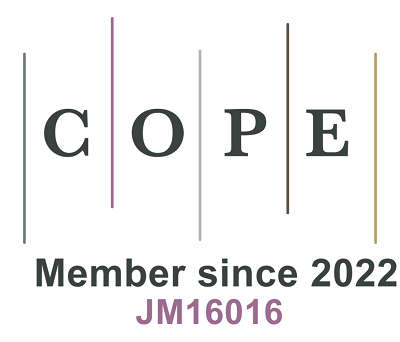A Special Interview with Dr. Fernando Bril - Metabolism and Target Organ Damage
On October 26, 2023, the Editorial Office of Metabolism and Target Organ Damage (M&TOD) had the privilege of sitting down with Dr. Fernando Bril, a renowned medical research expert and a valued member of the Editorial Board of M&TOD. Notably, Dr. Bril was recently promoted from the Junior Editorial Board to the Editorial Board, marking a significant achievement in his journey with the journal. During the interview, we explored Dr. Bril’s valuable recommendations for the future development of M&TOD, considering the journal’s recent achievements, including its indexing in Scopus in August of this year and its application for inclusion in the ESCI database. Dr Bril’s input is expected to play a significant role in guiding the journal’s growth. In addition, we delved into Dr. Bril’s multi-disciplinary research portfolio, spanning non-alcoholic fatty liver disease (NAFLD), type 2 diabetes, and metabolic syndrome, aiming to understand the interconnections and significance of these areas within his research. Furthermore, we explored his perspective on the potential applications of machine learning in medical and clinical research and his recent research findings on the intriguing correlation between hypercholesterolemia and COVID-19. To conclude, Dr. Bril graciously shared words of encouragement and guidance for young doctors and scientists.
Questions for this interview:
1. First and foremost, congratulations on your well-deserved promotion from the Young Editorial Board to the Editorial Board at M&TOD. Your invaluable support and guidance have played a pivotal role in the growth of the journal. M&TOD achieved a significant milestone by being indexed by Scopus on August 2nd this year, and it has also applied for inclusion in the ESCI database. This marks a critical juncture in M&TOD's development. Can you offer any recommendations for the future advancement of the journal?
2. Your research encompasses various fields, including non-alcoholic fatty liver disease (NAFLD), type 2 diabetes, and metabolic syndrome. How do you perceive the connections and significance among these fields?
3. Your research on machine learning methods has garnered widespread attention. How do you view the prospects of applying machine learning in medical and clinical research?
4. In your recent research, you made mention of the correlation between Hypercholesterolemia and COVID-19, a connection of utmost interest in the current medical landscape. Would you be willing to share some key research findings and discoveries in this context?
5. What guidance or words of encouragement would you offer to young doctors and scientists aspiring to embark on a career in medical research?
Personal Introduction:

Dr. Fernando Bril is an Assistant Professor in the Division of Endocrinology, Diabetes and Metabolism at the University of Alabama at Birmingham (UAB), AL, USA. He completed his medical school and four years of internal medicine residency at Instituto Universitario CEMIC (IUC) in Buenos Aires, Argentina. Subsequently, he embarked on a research fellowship and post-doc studies in the Division of Endocrinology, Diabetes and Metabolism at the University of Florida (UF) in Gainesville, FL. His research focused on non-alcoholic fatty liver disease (recently renamed to metabolic dysfunction-associated steatotic liver disease [MASLD]), type 2 diabetes, and insulin resistance. Later, he resumed his clinical training in the United States, completing his internal medicine residency and an endocrinology fellowship at the University of Alabama at Birmingham (UAB).
Editor: Alani Luo
Language Editor: Catherine Yang
Production Editor: Kenny Wu
Respectfully Submitted by the Editorial Office of Metabolism and Target Organ Damage





